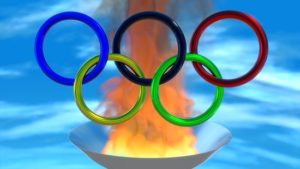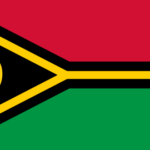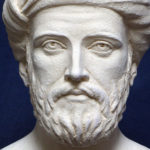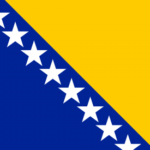25 interesting facts about the Olympic Games
 It is the Olympic Games that are the most famous and large-scale sporting event in the world. Having appeared in ancient Greece, they were forgotten for many centuries, but in the end they were revived. Over the past time, they have undergone a lot of changes, but their essence remains the same – this is a competition of the most worthy and experienced athletes in a variety of disciplines. The list of Olympic sports is gradually expanding, and they are becoming more and more comprehensive.
It is the Olympic Games that are the most famous and large-scale sporting event in the world. Having appeared in ancient Greece, they were forgotten for many centuries, but in the end they were revived. Over the past time, they have undergone a lot of changes, but their essence remains the same – this is a competition of the most worthy and experienced athletes in a variety of disciplines. The list of Olympic sports is gradually expanding, and they are becoming more and more comprehensive.
One of the most interesting moments occurred at a rehearsal of the opening ceremony of the XI Winter Olympics in 1972 in Japan. As one of the viewers noted, the arrangement of colored rings on the flag was mixed up. It was then that it turned out that the wrong flag was hung at all the Winter Olympic Games for the whole 20 years, and no one noticed anything.
The Olympic torch relay in 2014 was the longest in the history of the games. It started on October 7, 2013 in Moscow, and ended on February 7, 2014 in Sochi. The Olympic flame covered over 60,000 km, and the number of torchbearers exceeded 14 thousand.
The very tradition of the Olympic flame was not immediately revived. In modern games, it was returned only in 1952 at the Olympics, held in Norway.
Olympic medals for first place, the so-called gold, for nearly a hundred years, not gold, but only gilded. Previously, they were made of pure gold, but since 1912 they are made of silver, after which they are covered with a thin layer of gold. It accounts for only about 1% of the mass of the coin.
1920 American Eddie Egan won the Summer Olympics in the heavyweight boxer tournament. And having finished his boxing career, he became interested in bobsleigh. Moreover, it was so successful that in 1932 he also became the Olympic champion in this sport. Egan is the first athlete in the world who managed to win both the Summer and Winter Olympics.
In 1932, disciplines such as architecture, painting, music, literature, sculpture, and graphics were included in the Summer Olympics.
Norway has won more medals in the Winter Olympics than any other country – more than 260.
The five interconnected rings of the Olympic flag symbolize the five continents of the world connected by friendship. The founder of the modern Olympic Games, Pierre de Coubertin, claimed that at least one of the colors of the rings was present in the national flag of every country in the world.
In 1896, in Athens, at the first Olympic Games after their revival, the main prize was a silver medal and an olive branch. For the second place they gave a bronze medal, and for the third they did not give anything at all.
And in France in 1900, instead of medals, the winners of the Olympic Games were awarded paintings. In each state, winners were awarded in their own way, and standard medals began to be awarded only in 1904.
Previously, pigeons were released at the opening ceremony of the Olympic Games, but after the incident in Seoul in 1988 they were banned, albeit not immediately. Then the released birds sat down on a bowl of fire and burned down.
In 1956, athletes of the USSR first participated in the Winter Games. And so fortunate that in terms of the number of awards won they were ahead of everyone. And Canadian hockey players received another shock: they became only the third, losing not only to the USSR, but also to the USA.
Games of the XV Olympiad, which began in 1952 in Helsinki, formally continue to this day. IOC President Siegfried Edstrom at the closing ceremony was so carried away that he forgot to utter the key phrase: “I declare the XV Olympics Games closed.” Therefore, officially these games have not ended.
The first dope at the Olympics was discovered in 1968. Hans-Gunnar Lilienvol, a pentathlete from Sweden, was unable to compete due to the large amount of alcohol in his blood. Later he made excuses that he just drank a couple of glasses of beer. After this incident, they began to check the athletes for the presence of prohibited substances in the blood.
For the Winter Olympic Games in Sochi, a record number of awards were made in the entire history of the winter competitions – 1300 pieces. Their production took about 3 kg of gold, 2 tons of silver and 700 kg of bronze.
The youngest Olympian was the Greek gymnast Dimitrius Lonrdas, who participated in the games since 1896. At that time he was only 10 years old. And the oldest shooter from Sweden was Oscar Swann. In 1920, when he participated in games in Antwerp in Belgium, he was 72 years old.
The mascots of the 2008 Beijing Olympic Games are named Bei Bei, Jing Ching, Huan Huan, Yin-Yin and Ni-ni. If you add the first syllables of the names of the talismans into a sentence, you get the phrase “Welcome to Beijing”.



























